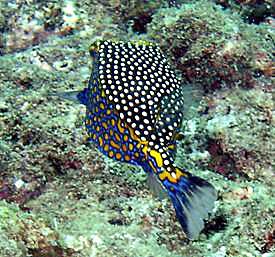I can totally understand why people rave about Bali – a truly
wonderful place – loved it – so serene – and very quiet. I took a
flight from London to Singapore that took 12 hours, then a 2 hour
wait in Changi – could be far worse places to wait! And off to
Bali, on a low cost airline, Australian Airlines. It only took 2
hrs 5 mins, so only a hop and a good airline experience.
We were met at Depensar airport around 10pm by a very good
natured man from the resort I'd booked and we transferred in
an air con'd jeep that had seen better days to the north part
of Bali, cutting through the mountains, past dark reflective
lakes and rice terraces, past lush rain forest and neat houses
adjoining the road and the silhouettes of Hindu temple after
temple. Even in the dark, it all looked very clean and
fascinating. It took two and a half hours, but we were later to
realise that this was a very good time to do the transfer as
during the day, the roads are unbelievably congested with men on
motorbikes, men and whole families concertina-d on motorbikes,
men and women riding side saddle on motorbikes, small stall
holders with their wares on motorbikes, ancient lorries dripping
with all manner of contents churning to get up hills and the odd
short mini bus, but no tourists.
Got to the hotel
about 1am, full of beans and explored the grounds, saw the sign
saying do not feed the monkeys, dipped my toes in one of many hot
springs and was up early the next day to sort out diving.
The place we stayed in had several natural hot spring pools: some
really, really hot, some just very hot and some varying between
just right to cold – total bliss. After 2 nights of staying in a
very nice room, with a semi open air bathroom surrounded by
tropical plants, I came back from diving and was met by a very
excited friend, Marian, who told me that we had been upgraded to
our own villa with its own hot spring tub kind of thing. It was
very posh, and we spent hours in our own little natural spring
hot tub in our own courtyard surrounded by tropical flowers and
banana, mango and papaya trees – total bliss!
 Very good
diving, all drift diving, some strong currents, including down
currents – hhhmm – oh, and dynamite fishing whilst we were in the
water! This was a little scary. The previous day we'd been
out diving around Menjangen Island when we unexpectedly came
across several men diving along side us, breathing in compressed
air from an umbilical cord leading from a boat on the surface.
They had a couple of weights wrapped around their waist but no
other safety equipment, like a gauge to tell them how deep they
were or how long they'd been in the water.
Very good
diving, all drift diving, some strong currents, including down
currents – hhhmm – oh, and dynamite fishing whilst we were in the
water! This was a little scary. The previous day we'd been
out diving around Menjangen Island when we unexpectedly came
across several men diving along side us, breathing in compressed
air from an umbilical cord leading from a boat on the surface.
They had a couple of weights wrapped around their waist but no
other safety equipment, like a gauge to tell them how deep they
were or how long they'd been in the water.
This is extremely dangerous, as they were doing hideous dive
profiles, see-sawing up and down is a great way to get air
embolisms, not to mention the bends if you are in the water too
long. Not only were they carrying spear guns, but they were
stealing tiny baby colourful tropical fish – for sale in
aquariums. The three pictures show a baby puffer fish and a clown
anemone fish, both the type these pirates were trying to catch.
They had long metal rods and were poking around behind coral and
in the crevices, they knew exactly what they were after – baby
lion fish and butterfly fish, but very, very small ones. They
coaxed or frightened them out from their hiding places, caught
them in a butterfly kind of net and then put them into plastic
bags and tied them to themselves. It was not a good sight.
 This was not
quite in the protected WWF marine reserve where I mostly dived,
but they most definitely should not have been doing this. They
were no more pleased to see us than me and the dive instructor I
was with, were to see them. They knew they were 'in the
wrong' and it was a very awkward situation under water, a
little aggressive and certainly very threatening. When we got
back to our dive boat, and were returning to our hotel, the
Japanese instructor (a tiny little thing, with the strength of
Goliath) said in Indonesian (which I picked up a fair bit of!) to
the guys on the pirate boat that she was going to call the
police. They were not impressed.
This was not
quite in the protected WWF marine reserve where I mostly dived,
but they most definitely should not have been doing this. They
were no more pleased to see us than me and the dive instructor I
was with, were to see them. They knew they were 'in the
wrong' and it was a very awkward situation under water, a
little aggressive and certainly very threatening. When we got
back to our dive boat, and were returning to our hotel, the
Japanese instructor (a tiny little thing, with the strength of
Goliath) said in Indonesian (which I picked up a fair bit of!) to
the guys on the pirate boat that she was going to call the
police. They were not impressed.
 The next day
we dived in a different part of the same marine sanctuary, when
we heard this massive boom. There is only one sound, that, even
under water sounds like that – explosives. I was rather scared,
to put it mildly! Someone close by was dynamite fishing. It was
not a good feeling, and I thought that maybe, just maybe, my time
was up, and this is how it was all going to end – making enemies
with Indonesians stealing tropical fish who dynamited us out of
the water for revenge. But, as you can see, they did not dynamite
us, but there were four explosions on that dive and they were
further away than I first thought, but it was still very scary,
the whole water and landscape seems to vibrate and shake, almost
as if it was crying.
The next day
we dived in a different part of the same marine sanctuary, when
we heard this massive boom. There is only one sound, that, even
under water sounds like that – explosives. I was rather scared,
to put it mildly! Someone close by was dynamite fishing. It was
not a good feeling, and I thought that maybe, just maybe, my time
was up, and this is how it was all going to end – making enemies
with Indonesians stealing tropical fish who dynamited us out of
the water for revenge. But, as you can see, they did not dynamite
us, but there were four explosions on that dive and they were
further away than I first thought, but it was still very scary,
the whole water and landscape seems to vibrate and shake, almost
as if it was crying.
Apart from the dynamite fishing, I can whole heartedly recommend
the unvisited northern and north east part of Bali, it's
beautiful, the people serene, friendly and a privilege to have
spent time there.

 Very good
diving, all drift diving, some strong currents, including down
currents – hhhmm – oh, and dynamite fishing whilst we were in the
water! This was a little scary. The previous day we'd been
out diving around Menjangen Island when we unexpectedly came
across several men diving along side us, breathing in compressed
air from an umbilical cord leading from a boat on the surface.
They had a couple of weights wrapped around their waist but no
other safety equipment, like a gauge to tell them how deep they
were or how long they'd been in the water.
Very good
diving, all drift diving, some strong currents, including down
currents – hhhmm – oh, and dynamite fishing whilst we were in the
water! This was a little scary. The previous day we'd been
out diving around Menjangen Island when we unexpectedly came
across several men diving along side us, breathing in compressed
air from an umbilical cord leading from a boat on the surface.
They had a couple of weights wrapped around their waist but no
other safety equipment, like a gauge to tell them how deep they
were or how long they'd been in the water.
 This was not
quite in the protected WWF marine reserve where I mostly dived,
but they most definitely should not have been doing this. They
were no more pleased to see us than me and the dive instructor I
was with, were to see them. They knew they were 'in the
wrong' and it was a very awkward situation under water, a
little aggressive and certainly very threatening. When we got
back to our dive boat, and were returning to our hotel, the
Japanese instructor (a tiny little thing, with the strength of
Goliath) said in Indonesian (which I picked up a fair bit of!) to
the guys on the pirate boat that she was going to call the
police. They were not impressed.
This was not
quite in the protected WWF marine reserve where I mostly dived,
but they most definitely should not have been doing this. They
were no more pleased to see us than me and the dive instructor I
was with, were to see them. They knew they were 'in the
wrong' and it was a very awkward situation under water, a
little aggressive and certainly very threatening. When we got
back to our dive boat, and were returning to our hotel, the
Japanese instructor (a tiny little thing, with the strength of
Goliath) said in Indonesian (which I picked up a fair bit of!) to
the guys on the pirate boat that she was going to call the
police. They were not impressed.
 The next day
we dived in a different part of the same marine sanctuary, when
we heard this massive boom. There is only one sound, that, even
under water sounds like that – explosives. I was rather scared,
to put it mildly! Someone close by was dynamite fishing. It was
not a good feeling, and I thought that maybe, just maybe, my time
was up, and this is how it was all going to end – making enemies
with Indonesians stealing tropical fish who dynamited us out of
the water for revenge. But, as you can see, they did not dynamite
us, but there were four explosions on that dive and they were
further away than I first thought, but it was still very scary,
the whole water and landscape seems to vibrate and shake, almost
as if it was crying.
The next day
we dived in a different part of the same marine sanctuary, when
we heard this massive boom. There is only one sound, that, even
under water sounds like that – explosives. I was rather scared,
to put it mildly! Someone close by was dynamite fishing. It was
not a good feeling, and I thought that maybe, just maybe, my time
was up, and this is how it was all going to end – making enemies
with Indonesians stealing tropical fish who dynamited us out of
the water for revenge. But, as you can see, they did not dynamite
us, but there were four explosions on that dive and they were
further away than I first thought, but it was still very scary,
the whole water and landscape seems to vibrate and shake, almost
as if it was crying.